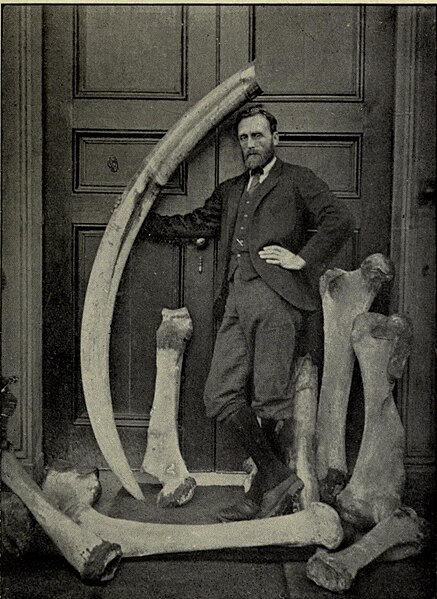Sir Victor Alexander Brooke, 3rd Baronet, was an Anglo-Irish sportsman-naturalist and baronet. He was the father of Field Marshal The 1st Viscount Alanbrooke, and grandfather of The 1st Viscount Brookeborough, Prime Minister of Northern Ireland. He shot and collected game trophies from around the world, took a special interest in deer and antelope species and published the first scientific description of the Persian fallow deer as a new species in 1875.
With tusk of an elephant shot in the Biligirirangans on 30 July 1863 along with Col. Douglas Hamilton. It has been considered the largest elephant ever shot in India.
Image: Victor Brooke
Alan Brooke, 1st Viscount Alanbrooke
Field Marshal Alan Francis Brooke, 1st Viscount Alanbrooke,, was a senior officer of the British Army. He was Chief of the Imperial General Staff (CIGS), the professional head of the British Army, during the Second World War, and was promoted to field marshal on 1 January 1944. As chairman of the Chiefs of Staff Committee, Brooke was the foremost military advisor to Prime Minister Winston Churchill, and had the role of co-ordinator of the British military efforts in the Allies' victory in 1945. After retiring from the British Army, he served as Lord High Constable of England during the Coronation of Queen Elizabeth II in 1953. His war diaries attracted attention for their criticism of Churchill and for Brooke's forthright views on other leading figures of the war.
Brooke as Chief of the Imperial General Staff in 1942
Lieutenant-General Brooke, GOC II Corps, with Major-General Bernard Montgomery, GOC 3rd Division, and Major-General Dudley Johnson, GOC 4th Division, pictured here in either 1939 or 1940.
Lieutenant-General Sir Alan Brooke sits for a portrait being painted by Reginald Eves, 30 April 1940.
The C-in-C Home Forces, General Sir Alan Brooke (left), during a visit to Northern Command with General Sir Ronald Adam (right), conferring around a 6-inch coastal defence gun, 6 August 1940.






